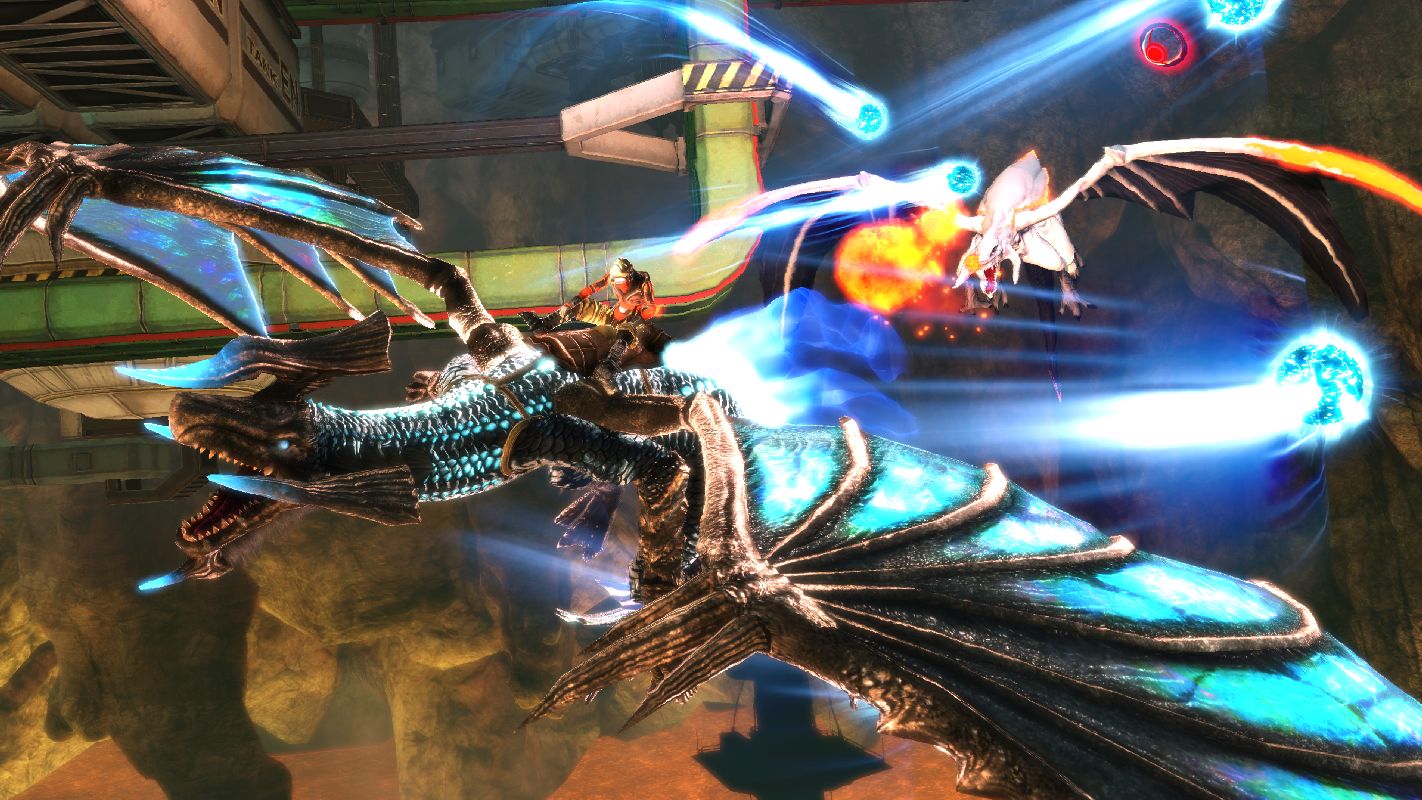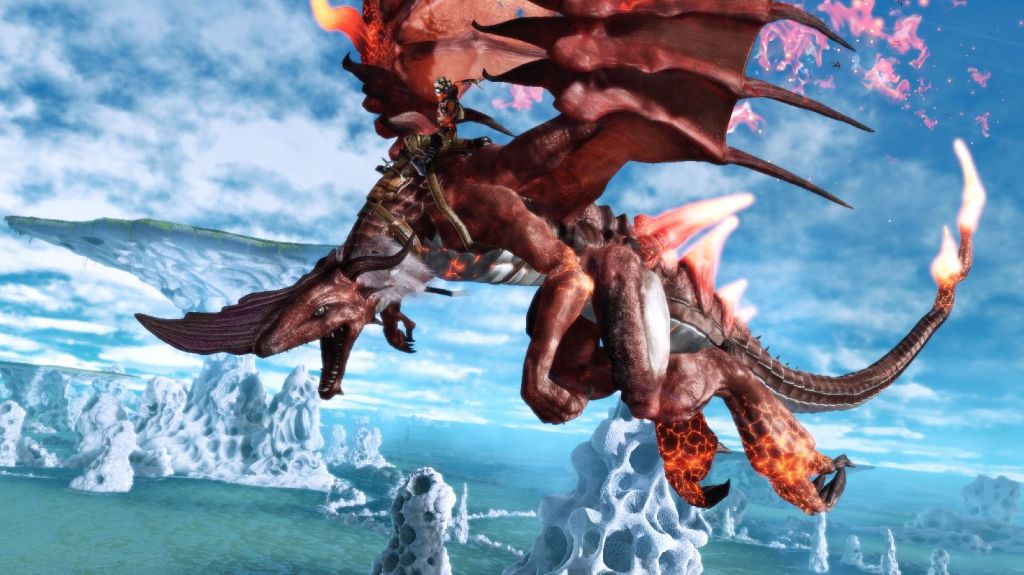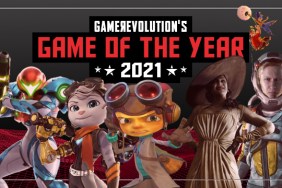Flight of the Silverwing.
Amidst the fusilade of high-profile game announcements that came fast and hot during the E3 press conference blitz on Monday, a lot of smaller, yet often more intriguing, reveals were more or less glossed over. But when the name Yukio Futatsugi flashed across the screen, I sucked in a breath of anticipation. Apparently, the creator of the sorely under-appreciated Phantom Dust and the beloved Panzer Dragoon franchise has been hard at work, and it only took a few seconds of footage to recognize the pedigree of Crimson Dragon for Xbox One.
Having owned and loved all three Futatsugi-directed entries in the Panzer series, I audibly squealed as I watched the reveal trailer unfold. Ragged-winged beasts majestically sweeping through expansive, vibrant backdrops while locking onto and decimating waves of beautifully designed monsters—it was the stuff of dreams, the sort of spiritual successor fans dream of but never get. The minute-long trailer left me hungry for more, but I had no idea how soon I'd get the taste I craved.
Hidden in plain sight, smack in the middle of Microsoft's sprawling E3 booth, my eyes fell hungrily upon a playable build of Crimson Dragon. Carefully withholding the squeals of joy that had escaped me during the reveal, I took up the controller to see if the magic was still there, and visually, it was. Air-based rail shooters just don't get made any longer, possibly for good reasons, but playing one with such high production values again made my inner '80s child grin. It didn't have quite the technical wizardry of some of the high-profile next-gen titles it was sharing floor space with, but it still stood as a great example of how the raw power of these new systems can benefit mid- and low-budget games. Something this pretty would never run so buttery smooth on the 360, especially with the kind of lighting and effects it was sporting.
Though the overall style of the gameplay will feel immediately familiar to fans of the genre, some subtle yet significant changes kept jumping out at me in ways I wasn't necessarily thrilled with. The first thing I noticed was the use of separate analogs to control movement and aiming independantly, which, while different from past entries in the series, isn't a bad thing on its own. But the reticule movement didn't feel quite so crisp as I remember it being in Panzer Dragoon Orta. There's also no way to control your speed, or where the camera is facing relative to your dragon… it's all handled “dynamically” I was told. I'm not really a fan of giving up levels of control like that unless it benefits the game's design in some way, but what could that benefit be, I thought? And then it dawned on me.
“Will this game be supporting Kinect by any chance?' I asked the friendly man at my demo station, who confirmed my suspicion. I'm just theorizing of course, but it seems likely that in order to keep everything manageable for a gesture-only control scheme, certain functions needed to be shed. It would also explain the new auto lock-on for the franchise perennial homing laser. Rather than hold a button to initiate lock, moving your cursor over a target will apply lock immediately. Again, none of these differences are world-ending on their own, but together they represent a significant speed-bump to clear on your trip down memory lane.

But fans needn't fret just yet. This collaboration between Land Ho and Grounding Inc. re-unites roughly 80% of Team Andromeda, the internal team at Sega responsible for the bulk of the Panzer Dragoon series. I doubt all those folks, including the franchise' original creator and director, would make these design decisions lightly, so I'm going to withhold my reservations until I can play more.
What did please me, however, was some of the light RPG elements being employed. Though none of them were present in the build I saw, I learned that the dragon featured in the demo was just one of six that would be playable, each with their own elemental affinities. Many enemies have corresponding elemental strengths and weaknesses, so depending on which dragon you choose, you'll be slaughtering, or struggling against certain foes. Dragons also level up over time, learning new skills and attacks. This could be as basic as a new secondary weapon or as interesting as an ability that allows you to reflect projectiles back-to-sender. Dragons differ in terms of agility and attack power as well, further differentiating them from one another. Add in randomly appearing rare monsters that drop power-ups to permanently augment your dragon's stats, and you've got the closest thing to a rail-shooter RPG since Panzer Dragoon Saga.
Of course, detailed info about all of this stuff wasn't available, nor anything about co-operative play beyond the fact that it exists. But the idea of infusing RPG elements with a gorgeous, dragon-filled rail shooter really appeals to me, and I'm sure fans of Futatsugi-san's work will feel the same. Whether the changes made to the controls will be a help or a hindrance to the experience will be something to keep an eye on, but until then, I'm just going to be happy that one of my favorite franchises is getting as close to a sequel as I could have ever hoped for.
Crimson Dragon is an Xbox One exclusive, and there is currently no information on when it will be released. Check back here for updates as we get them.







